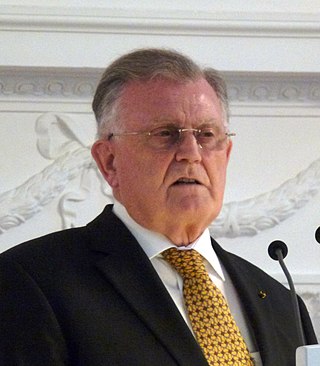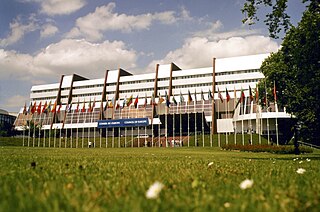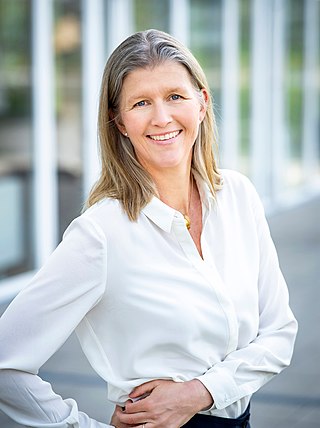Related Research Articles

The World Association of Girl Guides and Girl Scouts is a global association supporting the female-oriented and female-only Guiding and Scouting organisations in 152 countries. It was established in 1928 in Parád, Hungary, and has its headquarters in London, United Kingdom. It is the counterpart of the World Organization of the Scout Movement (WOSM). WAGGGS is organised into five regions and operates five international Guiding centers. It holds full member status in the European Youth Forum (YFJ), which operates within the Council of Europe and European Union areas, and works closely with these bodies.

The European Structural and Investment Funds are financial tools governed by a common rulebook, set up to implement the regional policy of the European Union, as well as the structural policy pillars of the Common Agricultural Policy and the Common Fisheries Policy. They aim to reduce regional disparities in income, wealth and opportunities. Europe's poorer regions receive most of the support, but all European regions are eligible for funding under the policy's various funds and programmes. The current framework is set for a period of seven years, from 2021 to 2027.

DB Regio AG is a subsidiary of Deutsche Bahn which operates regional and commuter train services in Germany. DB Regio AG, headquartered in Frankfurt am Main. It is a 100% subsidiary of the Deutsche Bahn Group and there part of the DB Regio business segment, which also includes DB Regionnetz Verkehrs GmbH and other independent subsidiaries.

Erwin Teufel is a German politician of the CDU.

The Congress of Local and Regional Authorities is the pan-European political assembly representing local and regional authorities from the forty-six member states of the Council of Europe. Its role is to promote local and regional democracy, improve local and regional governance and strengthen authorities' self-government, according to the principles laid down in the European Charter of Local Self-Government. It is made up of two chambers, the Chamber of Local Authorities and the Chamber of Regions and holds its plenary sessions twice a year at the Palace of Europe in Strasbourg, where its permanent Secretariat is located.
Interreg is a series of programmes to stimulate cooperation between regions in and out of the European Union (EU), funded by the European Regional Development Fund. The first Interreg started in 1989. Interreg IV covered the period 2007–2013. Interreg V (2014–2020) covers all 27 EU member states, the EFTA countries, six accession countries and 18 neighbouring countries. It has a budget of EUR 10.1 billion, which represents 2.8% of the total of the European Cohesion Policy budget. Since the non EU countries don't pay EU membership fee, they contribute directly to Interreg, not through ERDF.

The Greater Region, formerly also known as SaarLorLux, is a euroregion of eleven regional authorities located in four European states. The term has also been applied to cooperations of several of these authorities or of their subdivisions, administrations, organisations, clubs and people. Member regions represent different political structures: the Walloon region, comprising the French and German-speaking Communities of Belgium; the former Lorraine part of Grand Est, a region of France, including the French departments Meurthe-et-Moselle, Meuse, Moselle and Vosges; the German federated states of Rhineland-Palatinate and Saarland; and the sovereign state of Luxembourg.
A cross-border region is a territorial entity that is made of several local or regional authorities that are co-located yet belong to different nation states. Cross-border regions exist to take advantage of geographical conditions to strengthen their competitiveness.

Region Sønderjylland–Schleswig is the regional centre for cross-border cooperation between the municipalities of Tønder, Aabenraa, Haderslev and Sønderborg, the regional council of southern Denmark, the districts Schleswig-Flensburg and Nordfriesland, and the independent city of Flensburg.

Heribert Prantl is a German author, journalist and jurist. At the Süddeutsche Zeitung he was head of the department of domestic policy from 1995 to 2017, head of the department "opinion" from 2018 to 2019, member of the chief editors from 2011 to 2019 and is now columnist and author. Since 2002 he has been a lecturer at the faculty of law at Bielefeld University, where he was appointed honorary professor in 2010.

Andreas Zick is a professor of Socialization and Conflict Research at Faculty of Education Science, Bielefeld University.

Cross-border cooperation is the collaboration between adjacent areas across borders. In the European Union this is one of the forms of territorial cooperation. The European model is very diverse with cooperation between border regions or municipalities, or through specific cooperation structures. These structures are usually composed by public authorities from different countries organized in working communities, euroregions or EGTCs.
Gerhard Stahl is since August 2014 Professor at the Peking University HSBC Business School in Shenzhen in China. In addition he teaches as visiting professor at the College of Europe. Until April 2014 he was an EU Official, the former Secretary-General of the Committee of the regions of the European Union.

Andreas Kiefer is an Austrian politician. Since 2010, he is Secretary General of the Congress of Local and Regional Authorities of the Council of Europe, an institution representing local and regional authorities of the 47 member states of the Council of Europe.

Katja Isabel Leikert is a German politician of the Christian Democratic Union (CDU) who has been serving as a member of the Bundestag since 2013, representing the Hanau electoral district. Within the CDU/CSU Bundestag Group, parliamentary colleagues elected her one of the alliance's eleven Bundestag deputy chairpersons in January 2018.
Georg Pfeffer was a German anthropologist. Born in 1943 in Berlin to a German sociologist father and a British mother, he was schooled in Hamburg. In 1959, he moved to Lahore with his family, and studied at the city's Forman Christian College for 3 years. Later, he moved back to Germany and studied at the University of Freiburg where he also completed his Ph.D.

Peter Kurz is a German politician of the Social Democratic Party of Germany (SPD). He was the Lord mayor of Mannheim, the second-largest city in the German state of Baden-Württemberg from 4 August 2007 to 3 August 2023.

Ewald Grothe is a German historian. Since 2009 he has been an extraordinary professor at the Bergische Universität Wuppertal and since 2011 he has been head of the Archive of Liberalism of the Friedrich Naumann Foundation for Freedom in Gummersbach.
The Euroregion Elbe/Labe is one of the Euroregions with German and Czech participation. The purpose of the community of municipal interests is cross-border cooperation on a supranational level. The term is used to refer to both the organization and the geographical area of its operation.

Ann-Veruschka Jurisch is a German lawyer and politician of the Free Democratic Party (FDP) who has been serving as a member of the Bundestag since the 2021 elections.
References
- ↑ Kovziridze, Tamara (2008). Hierarchy and Interdependence in Multi-level Structures: Foreign and European Relations of Belgian, German and Austrian Federated Entities. Asp/Vubpress/Upa. p. 133. ISBN 9789054875369.
- ↑ Hooper, Barbara; Kramsch, Olivier (2004). Cross-Border Governance in the European Union. Taylor & Francis. p. 175. ISBN 9780203563380.
- ↑ Jens Gabbe and Dr. Viktor Frhr. von Malchus; Dr. Thomas Stumm (2008). "3.The Association of European Border Regions as an umbrella organization". In Caitriona Mullan (ed.). Cooperation Between European Border Regions: Review and Perspectives. Baden-Baden, Germany: Nomos Verlagsgesellschaft. p. 16. ISBN 978-3-8329-3390-6.
- 1 2 Jens Gabbe and Dr. Viktor Frhr. von Malchus; Dr. Thomas Stumm (2008). "3.5 Statutes for Common Goals". In Caitriona Mullan (ed.). Cooperation between European Border Regions: Review and Perspectives. Baden-Baden, Germany: Nomos Verlagsgesellschaft. pp. 23–24. ISBN 978-3-83293390-6.
- ↑ "Organization of AEBR". Archived from the original on 2018-05-12. Retrieved 2013-06-14.
- ↑ Jens Gabbe and Dr. Viktor Frhr. von Malchus; Dr. Thomas Stumm (2008). "3.5 Statutes for Common Goals". In Caitriona Mullan (ed.). Cooperation between European Border Regions: Review and Perspectives. Baden-Baden, Germany: Nomos Verlagsgesellschaft. p. 25. ISBN 978-3-83293390-6.
- ↑ Jens Gabbe and Dr. Viktor Frhr. von Malchus; Dr. Thomas Stumm (2008). "3.5 Statutes for Common Goals". In Caitriona Mullan (ed.). Cooperation between European Border Regions: Review and Perspectives. Baden-Baden, Germany: Nomos Verlagsgesellschaft. p. 24. ISBN 978-3-83293390-6.
- ↑ "Membership".